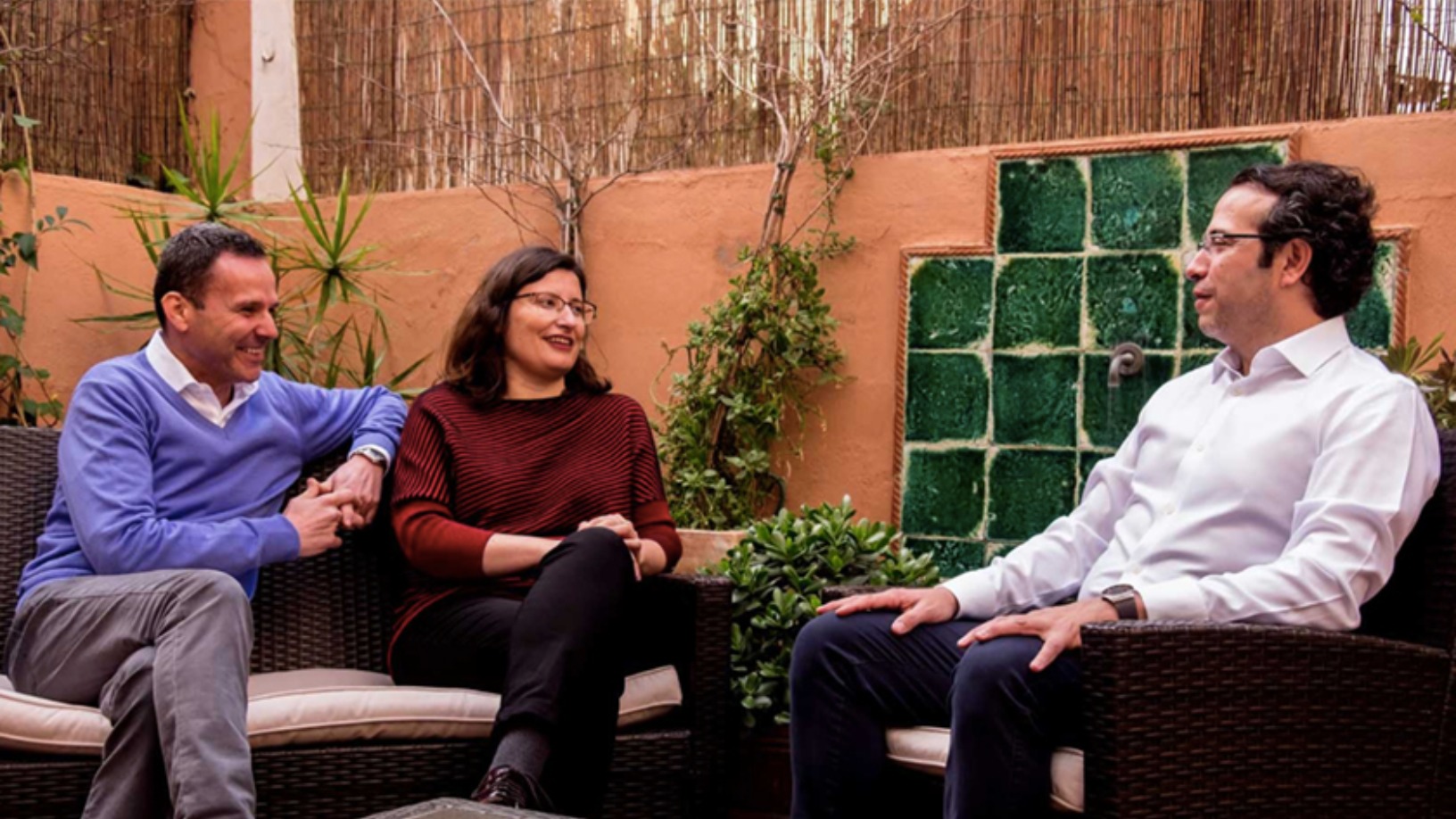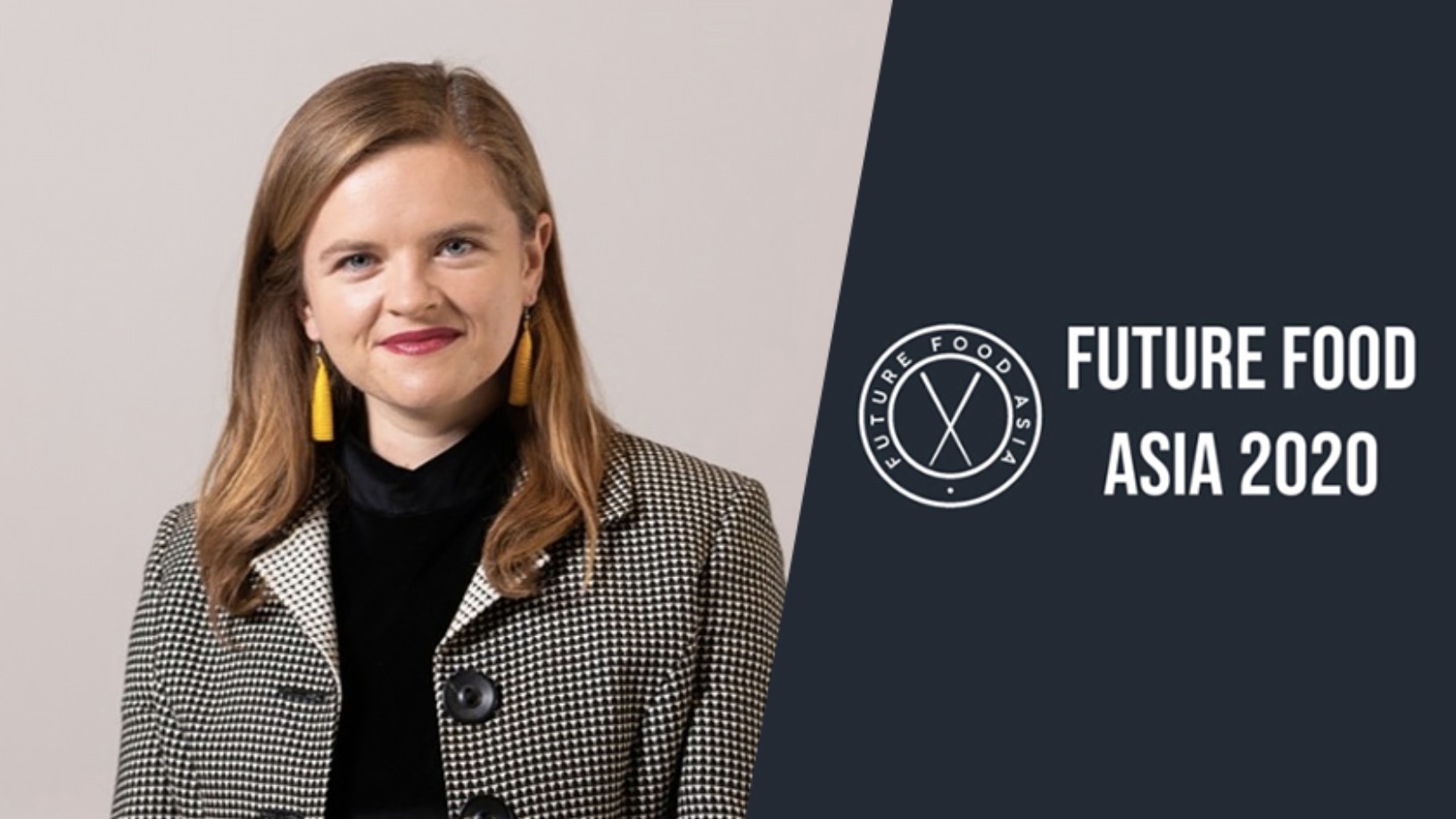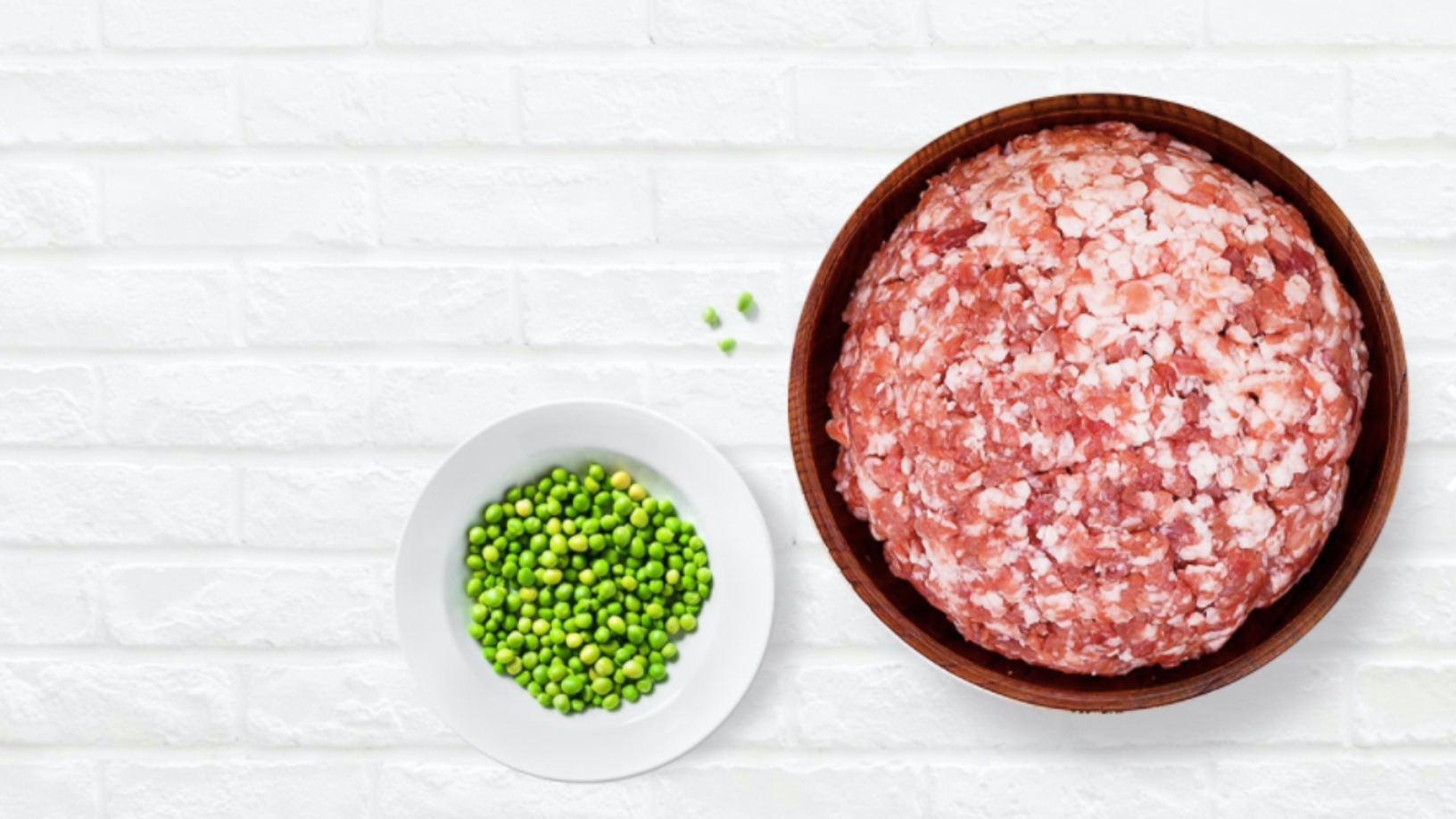Among the numerous plant-based protein alternative startups that have sprung up in the past two years, Barcelona-based Cubiq Foods is breaking into the market with a novel approach and potential game changer: lab-grown cell-based fat cultures and related ingredients that improve the taste and nutritional values of plant-based meat.
Unlike companies like Mission Barn in the US and Gourmet in France that also work with cell-based fat, the Spanish foodtech focuses on enriching plant-based products with Omega 3 fat. The smart fat emulsion is a healthier fat substitute than coconut oil and behaves like animal fat to enhance the flavor of plant-based food products.
The surge in demand for plant-based protein alternatives during the Covid pandemic is whetting venture investors’ appetite for startups in the sector. VC funding for such companies almost doubled to $1.1bn in the first seven months of 2020 compared with the year-ago period, according to Farm Animal Investment Risk & Return (FAIRR).
“[P]ublic concern over the link between meat production and the ongoing Covid-19 and African Swine Fever crises” has boosted retail demand for plant-based food, FAIRR said, noting that food producers are also moving to diversify their protein sources “to drive growth and reduce risk in a post-Covid, resource-constrained world."
For Andres Montefeltro and Raquel Revilla, it was the increasing global concern for animal well-being and the environment that spurred them to trial an innovative biotech process for the commercial production of cultivated fats. Together with entrepreneur Jordi Bladé, the duo founded Cubiq Foods in 2018 with Montefeltro as CEO, Revilla as Chief Scientific Officer and Bladé as CFO.
Today the startup has an R&D center in Barcelona in its 4,000 sqm warehouse. In an interview with CompassList, Montefeltro reveals plans to disrupt the food industry with Cubiq’s biotech discoveries.
This interview has been edited for length and clarity.
Why the name “Cubiq”?
Bioreactors are arranged into a cubic format for more efficient use of space for industrial production. Our vision is that, one day, there’ll be cubic-bioreactor farms producing a variety of ingredients more efficiently. Our products will also be sold using the cubic design.
How was the business idea developed? What are the benefits you’re seeking for the food industry?
In 2018, several companies were working with alternative proteins, such as those made from insects, bacteria, fungus, algae and other sources. But nobody was looking into the fat components and essential fatty acids, which are equally important and have to be included in the food chain because of their nutritional properties for the brain and vision functions, and maintenance and development of the organs.
So, we decided to become one of the first incubators of fat-specific applications. We identified various fatty acids, particularly essential fatty acids like Omega 3, which are healthier substitutes for animal fats and saturated vegetal oils like coconut oil.
Our products will have a new fat component that will be good for disease prevention, reduce cardiovascular problems and improve the nutrition of adults and kids. Today, most of the Omega 3 sources are nutraceuticals, or fish oil and algae oil pills. We also aim to help companies to integrate Omega 3 into their food products, in a way that’s viable and accessible to everyone.
Which animals are used to provide the Omega 3 cells in your product?
We extract it from the eggs of a single duck. One egg can produce half a million cells and from there, we create the cell lines. Part of the work by Cubiq’s senior scientific researcher Mario Notari is to immortalize the cell lines from the original culture. Once a good cell line is found, we won’t need any other egg because it will be immortal.
How much will your products cost when they are ready for commercialization?
The cost of the smart fat will be about €2–3 per kg. The micro-encapsulated Omega 3 and the cell-based Omega 3 will cost €50 per kg, the average market price for popular ingredients like algae oil.
In your opinion, how likely will customers buy products that contain lab-generated fat?
The existing markets for cultured meat and food are already educating many consumers. Young people don’t think of it as an issue, the problem might be with older generations. Cell-based products are more like nutraceuticals. Consumers don’t necessarily know the source, for example, when people buy vitamin pills, they don’t ask about the ingredients. However, many vitamins today are produced by bacteria with bioreactors.
Our vision is to make nutritional food that is sustainable, in terms of the source of the ingredients and being affordable. We don’t want to be like super-premium products that feed only 5% of the population. Everyone should have access to healthy food.
Is everything done in-house? Are you collaborating with other companies?
We have 30 employees. Our R&D is in-house and we run our own pilot projects. There are many companies who can be our partners for existing technology like spray-drying to help us to mass produce tons of micro-encapsulated oils. We want to innovate in ways that’ll enable us to scale up, stabilize the processes and certify everything. All these take time.
Meanwhile, we’re talking to companies making burgers, grain, other mince and meat products. We can potentially supply them with cheaper uncultured smart-fat emulsion of vegetable oil and water. Cultured fat is more expensive, normally priced at €1–2 per kg. Companies need a very good reason to persuade people to pay 40 times the normal price of traditional products. Our emulsion made from sunflower oil is very environment-friendly, sunflowers can grow in many places. Not like coconut oil from plantations that destroy tropical forests.
What are the current timelines for the pilots?
For the cell-based Omega 3 product, we are currently optimizing the growth conditions of the cell for scaling during 2021 and available for sale commercially by 2022. For the micro-encapsulation pilot, we are producing a few kilograms a day. The prototype will be ready for testing by the end of the year or early next year.
For the smart-fat emulsion, we are in a more advanced stage. We’ll probably start selling it by the end of the year. We also have a partner that can produce several tons a day. We are working with 40 clients in the meat and plant-based sectors in Spain, Germany, the UK and the US.
In May, you raised €5m from Blue Horizon Ventures, a Swiss investor in food tech, alongside existing investor Moira Capital Partners that had already injected €5m. Are you planning for more investment rounds?
We have a total of €10m in financing to date. Moira Capital initially planned to invest about €10m–12m to develop the business. Blue Horizon was brought in as part of this effort. We prefer to have one partner investor like Moira to take care of all the financing so that we can focus on the business. The company is becoming more mature, so we’ll probably look into the next funding phase of about €20m next year. [Note: Moira Capital holds a 46% stake in the company, Blue Horizon has 35% and the founders the remaining 19%.]
We received a Spanish grant for the cell-based Omega 3 product line, giving us almost €1m over 10 years. The funding is earmarked for this R&D project run by Notari, who’s also in charge of Cubiq’s molecular biology team and laboratory.
In 2017, we also received two Torres Quevedo grants of €100,000 each, funded by the Spanish State Research Agency to expand our research team. We’ll probably apply for another grant to develop other Cubiq products. We would like to apply to the European funding program for green and sustainable innovations, but it’s very competitive.
Has Covid affected the company’s plan for commercial production? How much revenue will be generated over the next two years?
We were affected by Covid because of the lockdowns, limiting access to our pilot plants to test the new products. Overall, our clients haven’t been significantly affected since food producers work mainly with supermarkets and retailers that sold 30% more goods than usual during the pandemic. We’ve been working flat out since June. Our clients are doing a lot of tests with our products to enable them to launch new healthier products to boost sales.
We currently plan to produce 100 tons of the cell-based Omega 3 by 2022, in our first scale-up phase. In 2021, we aim to make 100 tons of micro-encapsulated Omega 3. For smart-fat emulsions, our target will be 3,000–5,000 tons. We expect revenue of €6m for next year and €26m by 2024.
What do you mean by “clean innovation”?
There are three different types of innovations in our company. One is the smart-fat emulsion. Vegetal oils are combined with water to produce a healthier fat substitute ingredient for making burgers, sausages or any type of product.
Next is clean-meat tech that is cell-based and can be scaled-up to create the biomass to produce cultured meat. At a later stage, we will differentiate the cells into fat-cells that can produce the oils we want. Then, we’ll fine tune the culture conditions by adding the synthetic biological step that modifies the process to produce oil that’s rich in Omega 3.
Another innovation is micro-encapsulation using the spray-drying technique. A little drop of oil, 50 mg in size, is injected into a micro-capsule of proteins and polysaccharides. This process must be done correctly to prevent oxidation, making the product ready for absorption into the body.
Currently, the Omega 3 oil found in food products can be easily affected by oxidation with the air and the surrounding environment. This can destroy the molecule and by the time we eat it, there’s actually nothing left that can be absorbed by the body. Like vitamins, they have to be eaten fresh and very fast.
What about new products? Will the company stop using animal-based sources in a year or so?
We have a big commitment to shift to non-animal sourced materials throughout the company because of our latest investor. Blue Horizon Ventures only invests in vegan companies. For now, our cell-based products are on track to become serum-free by the end of this year.
Have you considered industrial applications in non-food sectors, e.g., cosmetics?
Probably in the future, but right now we need to focus on one segment or market at the time. Product development takes up a lot of time and resources, from patenting the idea to complying with regulations across Europe, the US, Japan, China and Southeast Asia. The first two or three years will be dedicated to this part of the business. Our technology can be applied to pharmaceutical products and cosmetics, we have such companies approaching us. But right now, we need to use our capital resources to develop our current business.











